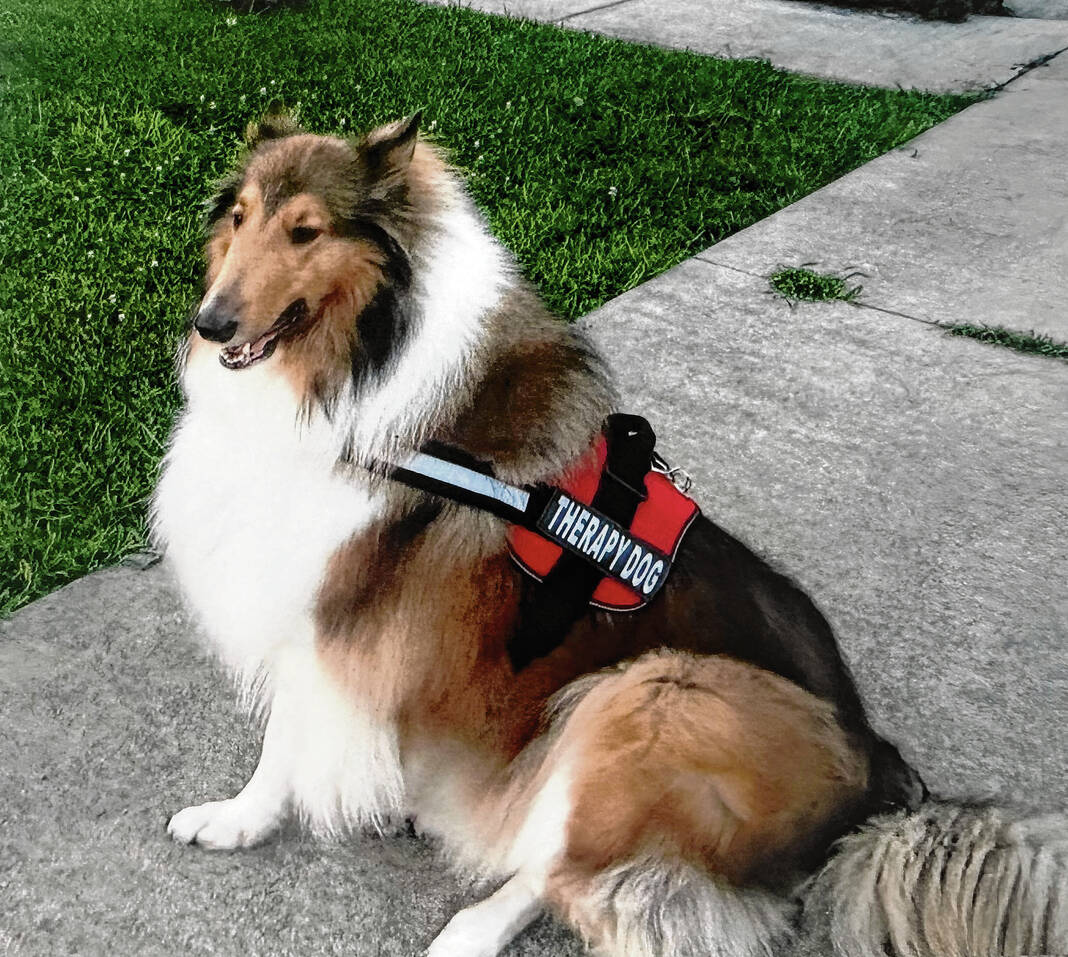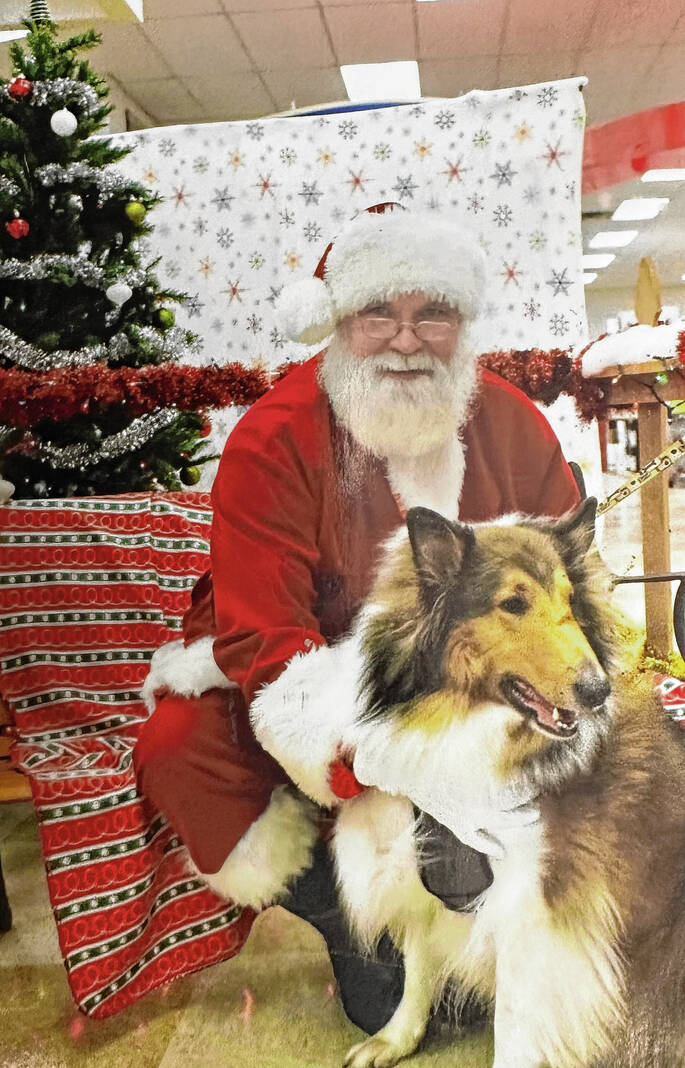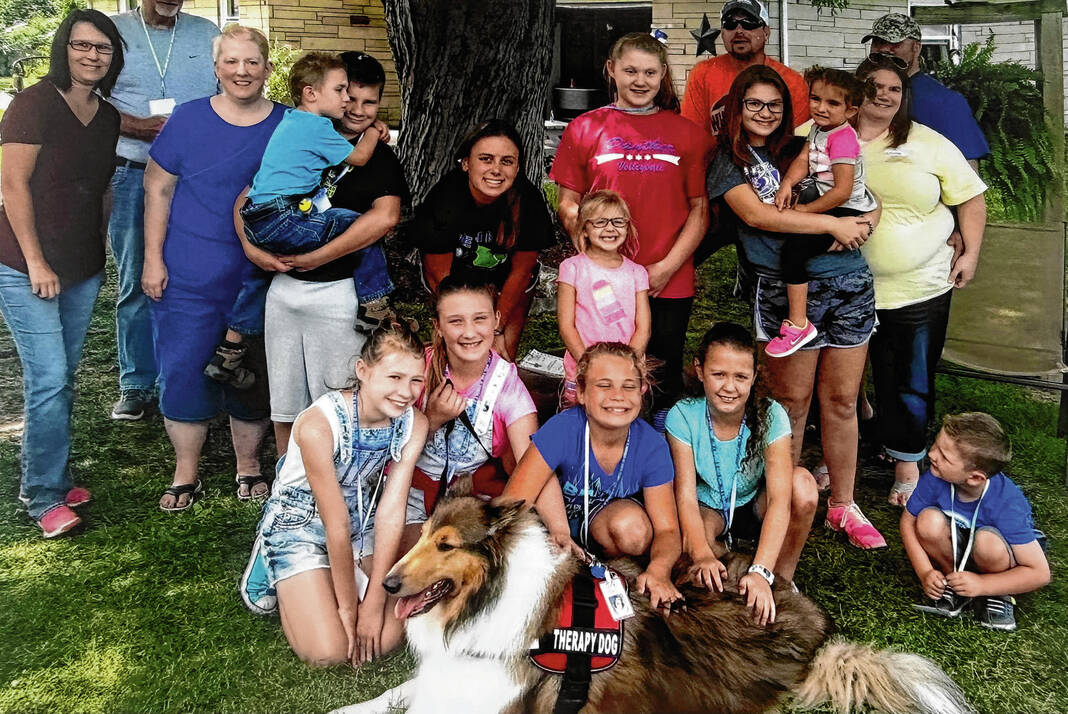Most would assume a dog’s purpose in life is to be man’s best friend.
For Abraham the Border Collie, however, he had one purpose when traveling to hospitals, doctor’s offices and nursing homes.
With his bright red vest with the words “Please Pet Me” attached to the side, his purpose was to make people smile in times of hardship.
“It was like he was meant to be a therapy dog,” said Jeannie Campbell, owner of Abraham.
The tap of his paws that alerted his presence in many of these places will no longer be heard, as Abraham died in late August.
Described as a quiet and loving dog that helped many through moments of grief and suffering, Campbell said it only felt right to honor Abraham’s impact in the community and the life he lived.
“He was extremely loved in the community,” she said. “If he met you once, he always knew you.”
Campbell and her late husband, Michael, were always fans of Border Collies because of their long and colorful coats, and after the death of their 12-year-old Collie, Murphy, she said they just had to get another one.
“I couldn’t stand it not having a dog in the house,” she said.
The couple found Abraham online through a Border Collie farm in Lewisburg, Kentucky, where the owner raised Border Collies for show. Abraham had a nice white coat on the front of his chest, something Campbell was looking for; however, his ears did not meet the standard for show requirements.
Luckily for them, Abraham was just what they were looking for.
“I wanted to get one that could possibly be trained as a therapy dog, and we got lucky he just had the perfect personality,” Campbell said.
They picked up Abraham when he was only 2 months old in April 2015 and named him after Abraham Lincoln since Campbell grew up in Kentucky just down the road from where the former president grew up.
The couple waited until he was 2 years old before having him tested to see if he could pass the necessary requirements to be certified.
Abraham was tested on his ability to be focused on tasks and how he responded to certain distractions, such as other dogs, loud noises and pinching his tail to see his reaction.
“He was a natural and passed all of his tests with no training,” Campbell said. “We were just amazed.”
Once Abraham received his certification, he went straight to work, traveling to Schneck Medical Center in Seymour to visit patients, attending various parties and events, like the Seymour Oktoberfest parade and the health fair, stopping by doctor’s offices and visiting residents in nursing homes.
Campbell said Abraham would often visit patients and sit with them while they would get chemotherapy.
“It doesn’t sound like much, but when you are fighting for your life, it means a lot to have something comforting by your side, especially if you are an animal lover,” she said.
Abraham also seemed to gravitate toward those with special needs, oftentimes giving them a kiss or lick on the nose.
“He just had a gift with people,” Campbell said.
Abraham worked as a therapy dog for four years until Michael’s cancer progressed to the point where it was difficult for him to travel.
“He was good for my husband during his battle with cancer,” Campbell said. “He stood by him during his time in hospice.”
Abraham worked the five-hour funeral of her husband, greeting people and being a source of comfort during the eulogies.
“He was so dedicated,” Campbell said. “That moment I will never forget. He had been my little rock since my husband passed, and I miss them both very much.”
Campbell said she often thinks about the many memories she made with Abraham and how others in the community cared for him, as well.
“I was always referred to as Abraham’s mom to the neighborhood kids that would stop by to pet him,” she said.
Campbell said Abraham liked to visit all of the neighborhood kids, especially if they were having a cookout. She said he never tried to steal a hot dog or a hamburger, but she is positive he would have loved it.
“He always liked to lay in the front yard and watch people come and go,” she said. “Some people would stop and get out of their cars to come say hi if they saw him.”
Campbell said she often misses her nightly walks with Abraham.
“We didn’t even need to leash him, and he would not cross the street unless I said so,” she said. “If we got to the end of the sidewalk, we would stop and look both ways and then cross the street together.”
Besides nightly walks, Campbell made Abraham an egg every morning, and they would enjoy their breakfast together. At dinner, Abraham sometimes had vegetables, such as peas, carrots or pumpkin, along with his kibble.
“That boy would eat a salad if you gave it to him,” she said.
Campbell said at times, Abraham had his mischievous moments when he would get up to the edge of the sidewalk and lie down because he knew he wasn’t allowed to cross the street.
“They really are like kids for some people, especially if you raise them,” she said.
In Abraham’s final moments before he passed, Campbell was able to give her final goodbyes and thank him for all of the work he did for others.
“I told him that he was going to go to heaven and work with daddy, and his ears stuck straight up,” she said. “They are up there doing therapy together, and it keeps me happy knowing that.”



